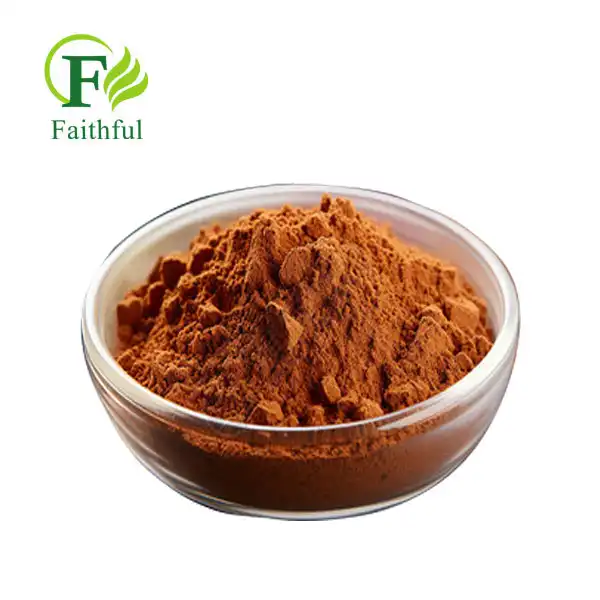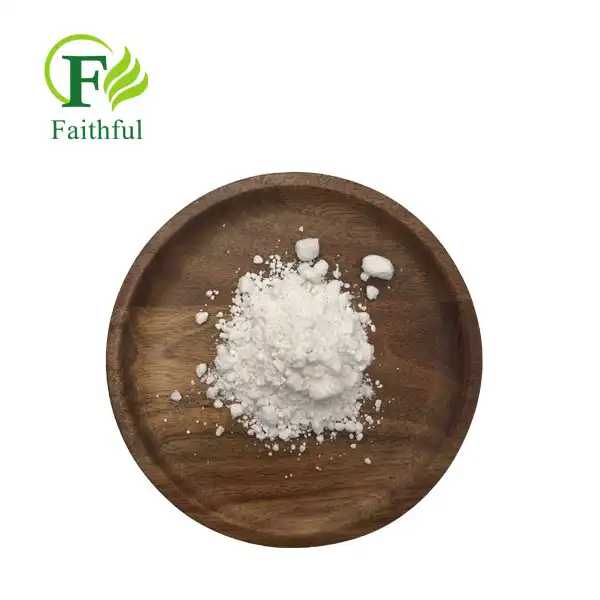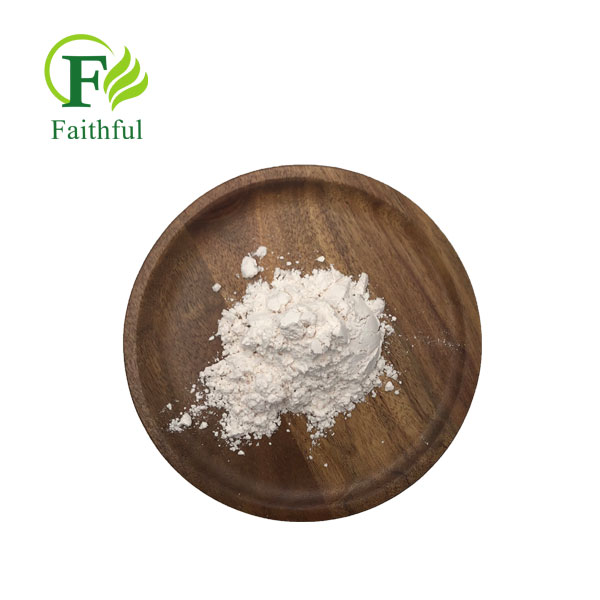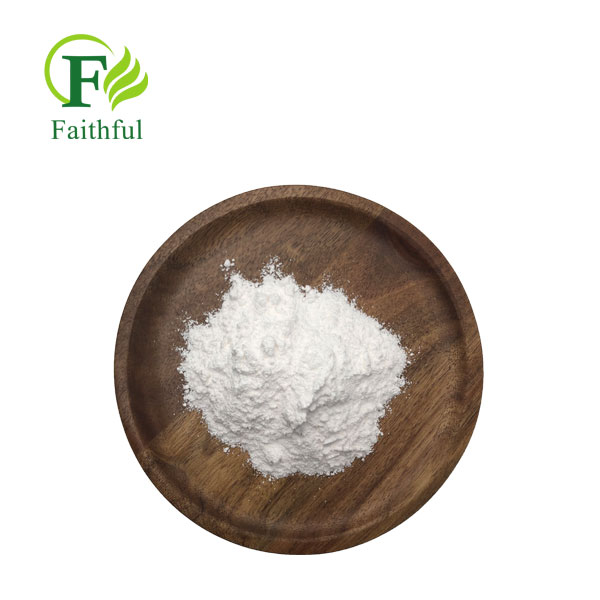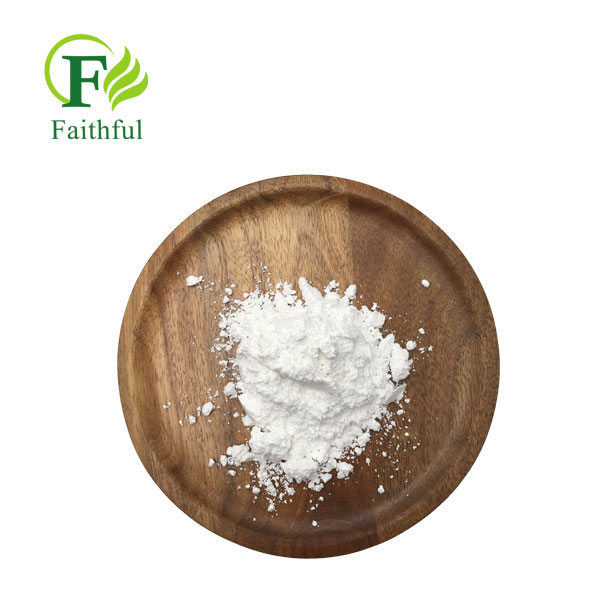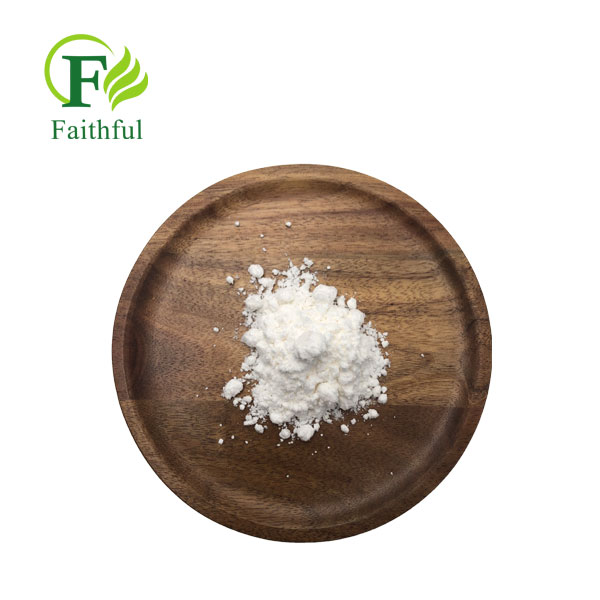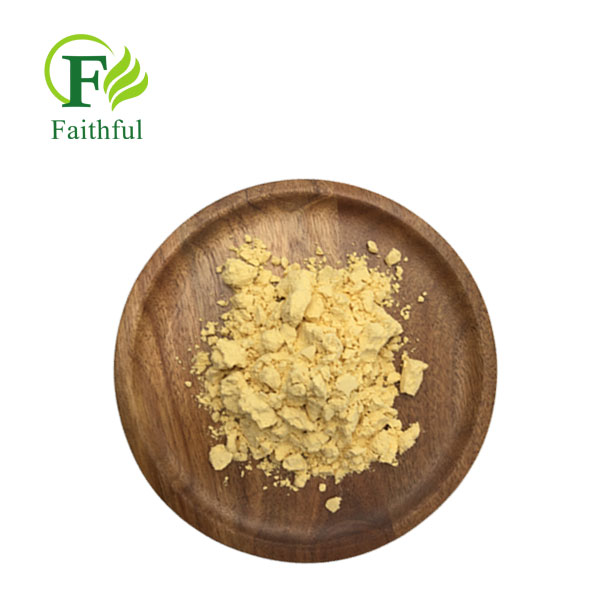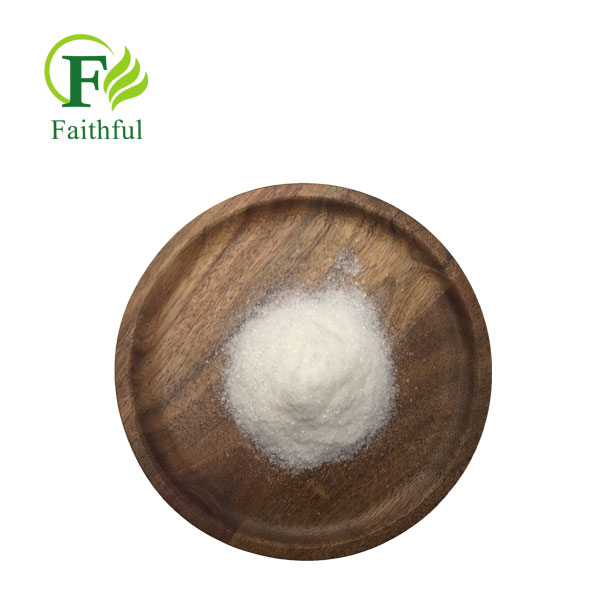How Does Resveratrol Powder Boost Your Antioxidant Defense?
Modern life exposes our cells to constant oxidative stress from environmental toxins, processed foods, and natural metabolic processes. Resveratrol powder emerges as a powerful natural defense mechanism, offering comprehensive protection against free radical damage through multiple biochemical pathways. This remarkable polyphenolic compound, naturally found in grapes, berries, and other plants, demonstrates exceptional antioxidant capabilities that surpass many conventional protective agents. Resveratrol powder works by neutralizing harmful reactive oxygen species, activating endogenous antioxidant enzymes, and supporting cellular repair mechanisms. Understanding how resveratrol powder enhances your body's natural defense systems reveals its profound impact on longevity, disease prevention, and overall cellular health maintenance.
Mechanisms of Antioxidant Protection
Direct Free Radical Scavenging Activity
Resveratrol powder exhibits remarkable direct antioxidant activity through its unique molecular structure containing multiple hydroxyl groups that readily donate electrons to neutralize free radicals. This polyphenolic compound demonstrates exceptional efficiency in scavenging superoxide anions, hydroxyl radicals, and peroxyl radicals that cause cellular damage. Research indicates that resveratrol powder can neutralize these harmful species at concentrations significantly lower than many traditional antioxidants, making it highly effective even in small doses. The compound's ability to form stable radical intermediates prevents the propagation of oxidative chain reactions that would otherwise cause widespread cellular destruction. Studies have shown that resveratrol powder maintains its protective effects across various pH conditions and cellular environments, ensuring consistent antioxidant protection throughout different body systems and tissues.

Upregulation of Endogenous Antioxidant Systems
Beyond direct scavenging activity, resveratrol powder activates the body's own antioxidant defense mechanisms through transcriptional regulation of protective enzymes. The compound stimulates the Nrf2 signaling pathway, a master regulator of cellular antioxidant response that increases production of glutathione peroxidase, catalase, and superoxide dismutase. This activation creates a sustained protective effect that extends far beyond the compound's immediate presence in tissues. Resveratrol powder also enhances the synthesis of glutathione, the body's most important intracellular antioxidant, by promoting the expression of enzymes involved in its biosynthesis. Clinical studies demonstrate that regular supplementation with resveratrol powder can increase baseline antioxidant enzyme activity by up to 40%, providing enhanced protection against oxidative stress even during periods when external antioxidant intake is limited.
Mitochondrial Protection and Bioenergetics
Mitochondria represent primary targets for oxidative damage due to their role in cellular respiration and energy production. Resveratrol powder provides specialized protection for these cellular powerhouses by stabilizing mitochondrial membranes and reducing electron leakage from the respiratory chain. The compound enhances mitochondrial antioxidant defenses by increasing manganese superoxide dismutase activity and maintaining optimal cytochrome c oxidase function. Research shows that resveratrol powder can reduce mitochondrial reactive oxygen species production by up to 30% while simultaneously improving ATP synthesis efficiency. This dual protective and enhancing effect ensures that cells maintain optimal energy production without the typical oxidative burden associated with increased metabolic activity. The compound's ability to activate SIRT1, a key regulator of mitochondrial biogenesis, further supports long-term cellular health by promoting the formation of new, healthy mitochondria.
Cellular Defense Enhancement Strategies
DNA Protection and Repair Mechanisms
Resveratrol powder provides crucial protection for genetic material through multiple mechanisms that prevent DNA damage and enhance repair processes. The compound intercalates between DNA base pairs, creating a protective barrier against oxidative damage from hydroxyl radicals and other reactive species. Studies demonstrate that resveratrol powder can reduce DNA strand breaks by up to 60% in cells exposed to oxidative stress. The compound also activates DNA repair enzymes, including poly(ADP-ribose) polymerase and DNA ligase, which rapidly identify and correct oxidative lesions before they can cause permanent mutations. Additionally, resveratrol powder supports telomere maintenance by activating telomerase activity and protecting telomeric DNA from oxidative shortening. This genomic protection is particularly important for preventing age-related cellular dysfunction and maintaining healthy cell division throughout the lifespan.
Inflammatory Pathway Modulation
Chronic inflammation generates substantial oxidative stress through immune cell activation and inflammatory mediator production. Resveratrol powder addresses this issue by modulating key inflammatory pathways, including NF-κB signaling, which controls the expression of numerous inflammatory genes. The compound inhibits the activation of inflammatory enzymes such as cyclooxygenase-2 and lipoxygenase, reducing the production of inflammatory prostaglandins and leukotrienes that generate oxidative stress. Research indicates that resveratrol powder can decrease inflammatory markers by up to 50% in both acute and chronic inflammatory conditions. The compound also promotes the resolution of inflammation by enhancing the production of specialized pro-resolving mediators that actively clear inflammatory cells and debris. This anti-inflammatory activity creates a synergistic effect with direct antioxidant properties, providing comprehensive protection against oxidative damage in inflammatory tissues.
Cardiovascular Antioxidant Support
The cardiovascular system faces constant oxidative challenges from blood flow dynamics, metabolic demands, and environmental exposures. Resveratrol powder provides specialized cardiovascular protection through its ability to prevent LDL cholesterol oxidation, a key initiating factor in atherosclerosis development. The compound stabilizes endothelial cell membranes and enhances nitric oxide bioavailability by protecting this crucial signaling molecule from oxidative degradation. Clinical studies show that resveratrol powder supplementation can improve endothelial function markers by up to 25% in individuals with cardiovascular risk factors. The compound also protects cardiac muscle from ischemia-reperfusion injury by maintaining mitochondrial integrity and reducing inflammatory responses during periods of reduced oxygen availability. These cardiovascular-specific benefits make resveratrol powder particularly valuable for individuals seeking comprehensive heart health support through enhanced antioxidant protection.
Applications and Therapeutic Potential
Anti-Aging and Longevity Applications
Resveratrol powder has gained significant attention for its potential anti-aging properties, primarily through its ability to activate sirtuins, a family of proteins associated with longevity and cellular stress resistance. These enzymes regulate various cellular processes including DNA repair, metabolic homeostasis, and stress response pathways that deteriorate with aging. Research demonstrates that resveratrol powder can extend cellular lifespan by up to 70% in laboratory studies through enhanced stress resistance and improved cellular maintenance mechanisms. The compound's antioxidant properties work synergistically with sirtuin activation to protect against age-related oxidative damage while promoting cellular renewal processes. Studies in various model organisms show that resveratrol powder supplementation can improve healthspan markers including cognitive function, metabolic flexibility, and physical performance during aging. These findings have led to extensive research into resveratrol powder applications in anti-aging formulations for both dietary supplements and cosmetic products.
Neuroprotective Antioxidant Effects
The nervous system is particularly vulnerable to oxidative damage due to its high metabolic rate and limited regenerative capacity. Resveratrol powder crosses the blood-brain barrier efficiently, providing direct neuroprotective benefits through multiple antioxidant mechanisms. The compound protects neurons from oxidative stress-induced apoptosis by maintaining mitochondrial membrane potential and preventing cytochrome c release. Research shows that resveratrol powder can reduce neuronal oxidative damage by up to 80% in models of neurodegenerative diseases. The compound also enhances brain-derived neurotrophic factor expression, promoting neuronal survival and synaptic plasticity maintenance. Additionally, resveratrol powder supports microglial polarization toward anti-inflammatory phenotypes, reducing neuroinflammation that contributes to cognitive decline. These neuroprotective properties make resveratrol powder valuable for cognitive health supplements and potential therapeutic applications in neurodegenerative conditions.
Sports Performance and Recovery Enhancement
Athletic performance generates substantial oxidative stress through increased oxygen consumption and metabolic demand. Resveratrol powder provides targeted support for athletes through its ability to enhance antioxidant defenses while supporting efficient energy production. The compound reduces exercise-induced muscle damage by protecting cell membranes from lipid peroxidation and maintaining calcium homeostasis in muscle fibers. Studies demonstrate that resveratrol powder supplementation can reduce post-exercise oxidative stress markers by up to 45% while improving recovery times. The compound also enhances endothelial function and blood flow, supporting optimal oxygen and nutrient delivery to working muscles. Additionally, resveratrol powder may improve exercise tolerance through its effects on mitochondrial biogenesis and metabolic efficiency. These performance-enhancing properties, combined with excellent safety profiles, make resveratrol powder an attractive ingredient for sports nutrition formulations targeting endurance and recovery enhancement.

Conclusion
Resveratrol powder represents a sophisticated approach to antioxidant defense, offering multi-faceted protection through direct radical scavenging, endogenous system activation, and cellular repair enhancement. Its unique ability to address oxidative stress at molecular, cellular, and systemic levels makes it invaluable for health maintenance and therapeutic applications across diverse populations and health conditions.
Xi'an Faithful BioTech Co., Ltd. leads the industry in delivering premium resveratrol powder through advanced extraction techniques and rigorous quality control measures. Our commitment to excellence ensures optimal potency and purity for applications ranging from dietary supplements to pharmaceutical research. With comprehensive technical support and continuous innovation, we provide resveratrol powder solutions that meet the evolving needs of health-conscious consumers and industry professionals. Experience the difference that quality makes in antioxidant defense – contact us at allen@faithfulbio.com for detailed product information and custom formulation services.
References
1. Baur, J. A., & Sinclair, D. A. (2006). Therapeutic potential of resveratrol: the in vivo evidence. Nature Reviews Drug Discovery, 5(6), 493-506.
2. Fremont, L. (2000). Biological effects of resveratrol. Life Sciences, 66(8), 663-673.
3. Howitz, K. T., Bitterman, K. J., Cohen, H. Y., Lamming, D. W., Lavu, S., Wood, J. G., & Sinclair, D. A. (2003). Small molecule activators of sirtuins extend Saccharomyces cerevisiae lifespan. Nature, 425(6954), 191-196.
4. Leonard, S. S., Xia, C., Jiang, B. H., Stinefelt, B., Klandorf, H., Harris, G. K., & Shi, X. (2003). Resveratrol scavenges reactive oxygen species and effects radical-induced cellular responses. Biochemical and Biophysical Research Communications, 309(4), 1017-1026.
5. Pervaiz, S. (2003). Resveratrol: from grapevines to mammalian biology. The FASEB Journal, 17(14), 1975-1985.
6. Wood, J. G., Rogina, B., Lavu, S., Howitz, K., Helfand, S. L., Tatar, M., & Sinclair, D. (2004). Sirtuin activators mimic caloric restriction and delay ageing in metazoans. Nature, 430(7000), 686-689.



